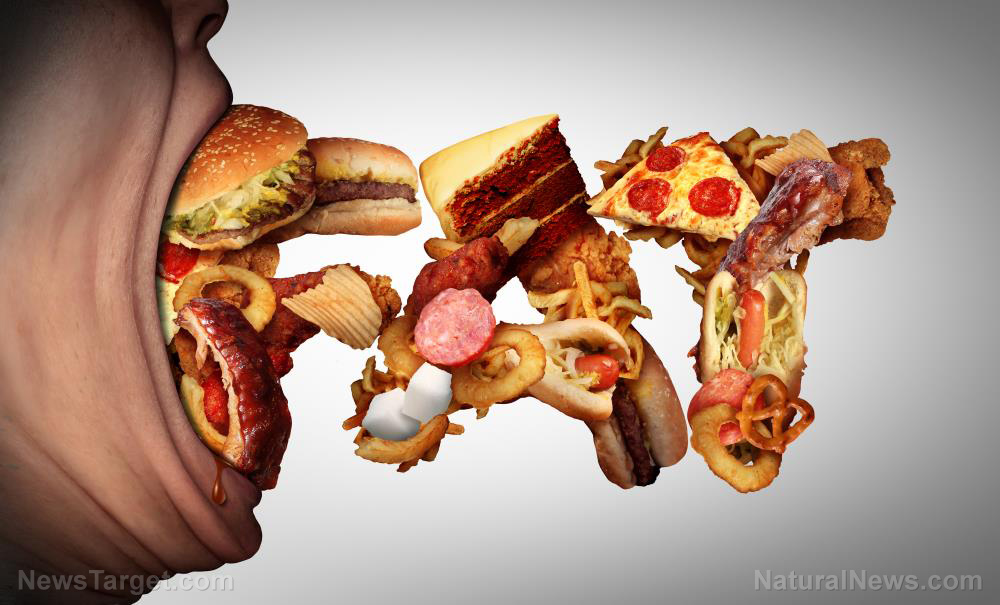From the frying pan and into the fire: study shows frying oil worsened colon cancer, colitis in mice
07/15/2020 / By Divina Ramirez

From heart disease to diabetes, fried foods can raise the risk of a host of conditions and their related health complications. Recent research published in the journal Cancer Prevention Research shows that heated cooking oil or frying oil can exacerbate preexisting gastrointestinal conditions, too.
Scientists from the University of Massachusetts (UMass) found that consumption of frying oil can complicate colitis (inflammation of the colon), promote gut leakage and trigger tumor formation in the colons of mice.
Guodong Zhang, a corresponding author and an associate professor at UMass, noted that although their research does not prove that frying oil causes cancer, it does establish a link and suggests that patients with colitis and colon cancer should refrain eating fried foods.
Frying changes oil and food composition
Fried foods make up the bulk of junk foods and fast food consumed in the U.S. and around the globe. Recent studies have found that these foods are linked to chronic conditions and earlier death. For the most part, this link is tied to the process of cooking them in oil.
Experts maintain that fried foods are bad for human health because of their fat-laden profile. Trans fats and saturated fats in these foods increase a person’s risk of high cholesterol and heart disease.
But despite the health risks linked to fried foods, cutting back on them is often easier said than done because of their addicting nature. For this reason, more and more consumers are seeking out healthier oils instead of forgoing fried foods altogether.
According to recent reports from the Institute of Food Technologists, so-called healthier oils, like canola, corn and palm oils, accounted for almost 90 percent of all frying oil consumed in the U.S. in 2016.
But experts have found that the process of heating the oil, not the oil itself, is to blame for the health risks that cooking oils are notorious for. They stated that doing so modifies the composition of foods being fried and the oil itself through a number of processes, including oxidation.
The oil itself also degrades upon each use creating more fats and compromising the nutrition profile of the food being fried. (Related: Fried foods, especially overcooked potatoes, dramatically increase cancer risk.)
Frying oil consumption can exacerbate gut problems
Zhang noted that many people who suffer from gastrointestinal conditions like colitis and colon cancer still eat fast food and fried foods. These foods are thought to contribute to preexisting gastrointestinal inflammation, but there is little research to back this up.
In addition, previous studies made on the effects of frying oil consumption on human health have differed in their findings. This has made it difficult to establish guidelines or recommendations for eating fried foods.
In their research, Zhang and his team wanted to see if frying oil consumption exaggerated gastrointestinal conditions in mice.
For their trials, the team obtained a sample of canola oil that had been used to cook falafel at 325 F and took note of its chemical composition. Lead author Jianan Zhang noted that canola oil is one of the most common oils used for frying in the United States.
The team then fed one group of mice a combination of frying oil and fresh or unheated oil to mimic a standard human diet. The mice in the control group, on the other hand, had been fed just the fresh oil.
Based on the test, the researchers found that the consumption of frying oil exacerbated colonic inflammation, colon tumor formation and gut leakage in the mice. In fact, tumors doubled in size in the experimental group, Zhang said.
As part of the study, the team also hypothesized that polar compounds in frying oil contribute to its pro-inflammatory effects. Polar compounds are those formed during the process of heating. In high amounts, these can be extremely unhealthy for the body.
To check their hypothesis, the team isolated these polar compounds from the frying oil and then fed them to the mice. The results of this trial mimicked those of the first, suggesting that polar compounds do trigger and promote inflammation in the gut.
Based on these findings, the researchers concluded that frying oil consumption can complicate colitis, stimulate tumor formation in the colon and damage the gastrointestinal tract itself.
Zhang notes that these findings do not point to frying oil as a definite cancer-causing agent. That being said, he added that colitis patients, colon cancer patients and people prone to inflammatory gastrointestinal conditions ought to eat less fried food.
Read more articles about the health risks of eating fried foods and other junk foods at StopEatingPoison.com.
Sources include:
Tagged Under: biomedical research, diabetes, fast food, fried foods, frying oil, future science, heart disease, toxic ingredients, tumors
RECENT NEWS & ARTICLES
COPYRIGHT © 2017 FAST FOOD NEWS




















